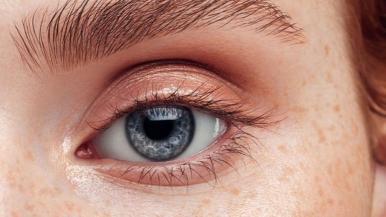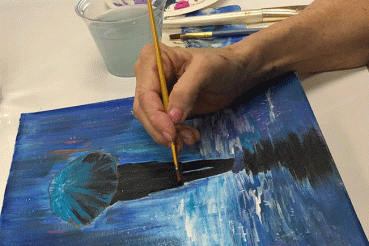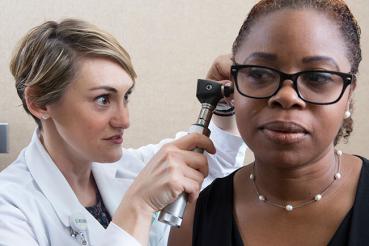We don’t typically think about our eyes unless something odd or irritating happens to them.
And figuring out when your eye problem is something common and can be easily treated — or more serious and you need to see a doctor — is crucial to keeping your eyes healthy.
“There are many eye conditions where the symptoms are subtle, so it’s important to be aware of them,” says Jonathan Rubenstein, MD, chair of the Department of Ophthalmology at Rush University Medical Center.
Here are a few signals your eyes may be trying to send you — and how to address them.
1. Irritation, burning, sensitivity to light or dry contacts
These symptoms can all be associated with dry or itchy eyes — the most common eye issue in the United States.
Rubenstein says it’s important to be aware of your environment and how it can affect your eyes.
“If you’re in a situation where you’re staring for long periods of time, like reading, using computers, watching TV or driving, this can cause less blinking and more risk for dry eyes,” he says. “This can be worsened in a low humidity or windy environment.”
If you experience dry or itchy eyes, Rubenstein suggests maintaining good eye hygiene, such as washing your face with a gentle cleanser or soap twice a day and using artificial tears three to four times a day.
2. Red eyes
Sometimes your eyes can become red or bloodshot because of allergies or viral infections like colds or even COVID-19.
“Similar to other colds, red eyes from viral conjunctivitis usually goes away within five to seven days,” Rubenstein says. “However, these infections are contagious, so you should be careful not to pass it on to other people.”
Rubenstein recommends over-the-counter decongestant or artificial tear eye drops to reduce some of the itching and irritation that can be associated with red eyes.
3. Spots or flashes in vision
Floaters can appear in your vision as small shapes, such as specks, dots or circles, and flashes can look like lightning or camera flashes.
“Eye floaters and flashes can be caused by increased movement of the gel-like fluid in your eye called vitreous. This movement increases as you age,” Rubenstein says. “If you experience ongoing flashes and floaters accompanied by changes in your peripheral vision, this can be an early sign of retinal detachment and you need to see an ophthalmologist.”
4. Blurry vision
Not seeing things clearly? The leading cause of blurry vision is cataracts, which affects an estimated 91 million people globally.
Fortunately, cataract surgery is performed routinely. A visit to your ophthalmologist can help diagnose cataracts and discuss possible surgical options.
Another serious cause of blurred vision is macular degeneration, which often runs in families.
“People with this condition experience a central loss of vision,” Rubenstein says. “For example, if you’re looking at a word and you miss the middle letters within that word, or if lines and boxes are distorted, this may be a symptom of macular degeneration.”
Treatment for blurred vision from macular degeneration may include supplemental vitamins. But if you experience constant blurriness, Rubenstein suggests seeking help from an ophthalmologist.
5. Issues with peripheral vision
Peripheral vision is what you see out of the corners of your eyes. If you’re noticing any changes, this could be an early sign of glaucoma.
But that can be tricky, given how gradually changes can happen. In fact, roughly half of people with glaucoma don’t even know they have it, according to the Centers for Disease Control and Prevention.
“It’s a sneaky disease,” Rubenstein says. “That’s why having regular exams to assess the pressure in your eye and optic nerve, along with considering your family history, is so important.”
If you experience issues with your peripheral vision, the treatment often includes eye drops once or more per day. Your doctor may recommend other treatments based on the severity of your condition.
For more information on eye issues and conditions, talk to your doctor or schedule an appointment with an ophthalmologist today.





